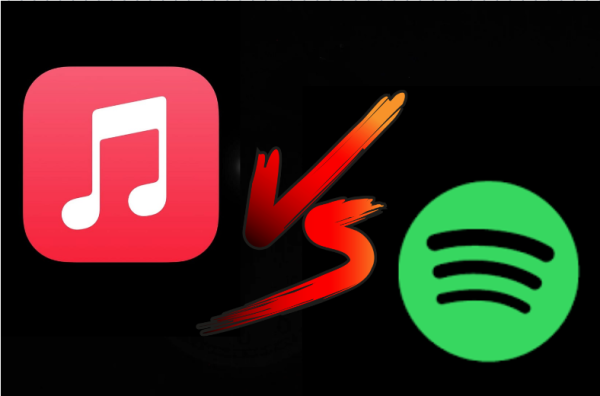The music industry struggles to keep up with a changing society
“There’s only music so that there’s new ringtones, and it don’t take no Sherlock Holmes to see it’s a little different around here.” In the Arctic Monkeys’ 2006 hit “A Certain Romance,” lead singer Alex Turner cynically confronts the cultural shifts occurring in the music world. He summarizes the diminishing importance of albums in a new singles-driven industry. Turner, although making an exaggerated remark, is not too far from the truth. As technology increases and people’s attention spans decrease, music adapts—for better or for worse. In a society dependent on immediacy, mainstream music has become short-lived by design, resulting in an industry of “ringtone music.”
In 1824, Ludwig van Beethoven debuted his 9th Symphony, a monumental achievement for music. Clocking in at around an hour long, the piece signified Beethoven’s return to the stage after 12 years of dormancy. Classical composers during this time period spent several years on single projects, leaving wide gaps between the release of separate symphonies. Music was, until recently, released sporadically so that it could take its time in situating with the listener. It comfortably soaked in the audience’s hearts until it wrung dry, leaving an empty space for more. Now, music drenches the listener, holding him or her underwater until he or she drowns.
A prime example of a current artist who “drowns” his listeners is rapper Gucci Mane. According to www.pigeonsandplanes.com, Mane released 24 full-length projects (mixtapes and albums) while he served a 39-month prison sentence. In 2015 alone, Gucci was credited on over 75 projects, almost all of which contained over ten songs. Despite his incarceration, Mane felt the need to continue releasing pre-recorded songs to his fans with the help of middlemen maintaining his public image from the outside.
“At the moment, [Gucci’s] got three hard drives full of music that I ain’t even touched yet,” said Mane’s executive assistant Sean Paine. “At this point, flood ’em with music.”
Fans of artists who release music every couple months are generally pleased with the rapid flow of new material. But the large quantities of songs do not compensate for the lack of quality associated with this consistency. Although they may view the new model of releasing music as rewarding, music fans should realize that placing value on lazy and quickly-produced tunes is detrimental to the industry. By encouraging musicians to constantly produce new music, listeners are helping shape an industry dominated by singles, while being deprived of quality full-length albums.
Drake, another giant in the hip-hop world, essentially based an entire 20 song album off of one single. He released “Hotline Bling” on July 31, 2015, almost a year before the full-length album Views. According to Pitchfork, much of the album was recorded in late 2015, almost as if Drake had hopped in the studio in response to the success of the single. In fairness, Views did produce various other popular songs, but none with the magnitude of “Hotline Bling.”
America’s short attention span has also notably affected the longevity of songs. Some artists do not even bother recording full-length albums because they would lose money on them. Artists can now achieve fame by releasing one track accompanied by a trendy dance, which discourages musicians from following typical patterns of producing discography.
An example is the 17-year old Silentó, who netted $100,000 off of “Watch Me (Whip / Nae Nae),” a song structured around the same hook repeated 59 times throughout the song. This repetition appealed to the masses for a couple months, earning Silentó a top ten spot in the Billboard 100. Yet, the fact that the “whip” and the “nae nae” were quickly dissolvable trends does not make Silentó’s profit any less massive.
“There’s something missing in the music industry today… and it’s music,” said musician Jimmy Buffett. “Songs you hear don’t last, [they are] just product fed to you by the industry.”
While it may be bitter to resist the inevitable shifts of pop culture, feeling nostalgic toward songs like Queen’s “Bohemian Rhapsody,” Kanye West’s “Runaway” and John Lennon’s “Imagine” is justified. These songs were well-crafted and maintained relevancy throughout decades following their releases. Of course, modern artists like Kendrick Lamar and Radiohead continue to produce quality, long-lasting music that floats in the mainstream, but, unfortunately, their genres are often consumed by short-lived hits. Ultimately, the listeners, not the artists, are responsible for restoring the importance of full-length albums. Rather than being infatuated with momentary trends, music lovers should start buying albums again. The music industry, as always, will adapt accordingly.
Your donation will support the student journalists of Calabasas High School. Your contribution will allow us to purchase equipment and cover our annual website hosting costs.












